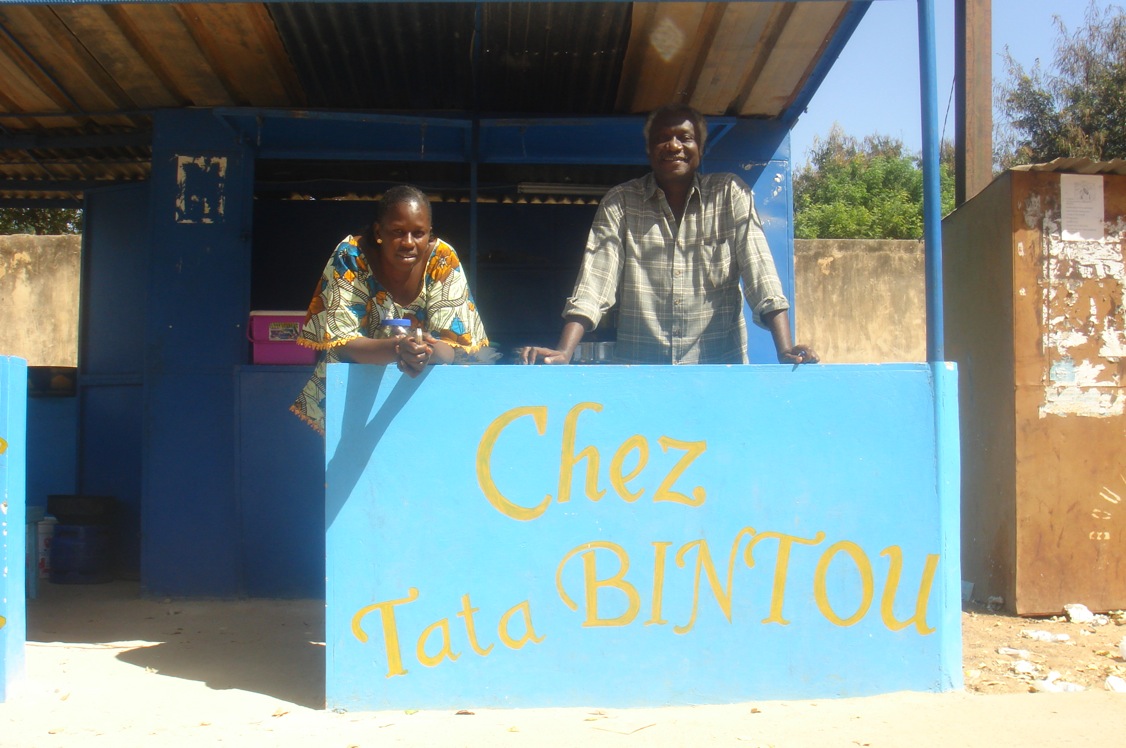Senegal’s Answer to the Golden Arches?
January 8, 2010
By Ilmari Soininen, KF9 Thies, Senegal
Of the forty-eight countries in Sub-Saharan Africa, how many would you guess have a Mcdonald’s? Why would one care?
Thomas Friedman, the columnist and author, posited “No two countries that both had McDonald’s had fought a war against each other since each got its McDonald’s”. If one had missed the lesson on causation versus correlation back in statistics class, the answer to ending conflict in Africa would be simple. Step one:open a Mcdonalds in every country on the continent. Step two: award Ronald Mcdonald the Nobel Peace Prize (“I’d like to thank God, the Hamburgler…”).
 Friedman’s point was that globalization ties countries closer economically, increasing the opportunity cost of waging war. A dubious theory on conflict prevention, especially as much of the residual conflict is internal, not countries fighting other countries. But perhaps the lack of Mcdonald’s in Africa can tell us something. Oh, and the answer to the initial question: as of 2009, only three of forty-eight countries in SSA have Mcdonald’s. – one of them being (a bit cryptically) Zimbabwe.
Friedman’s point was that globalization ties countries closer economically, increasing the opportunity cost of waging war. A dubious theory on conflict prevention, especially as much of the residual conflict is internal, not countries fighting other countries. But perhaps the lack of Mcdonald’s in Africa can tell us something. Oh, and the answer to the initial question: as of 2009, only three of forty-eight countries in SSA have Mcdonald’s. – one of them being (a bit cryptically) Zimbabwe.
The idea of chains and franchises popped into my head a couple of weeks back, when I visited a client, Fatou Binetou Dieng. According to the profile, she had used her loan to purchase traditional West African fabrics to sell in her neighborhood. Indeed she had. But this was a year ago.
Ms. Dieng and her husband, Thierno Ndiaye, had a better idea. They noticed that the students at their neighborhood primary school didn’t have good options for snacks close by. The same was true for the large high school across the street. The couple saw an opportunity looming, and decided to seize upon it. The easiest option would have been to simply open a small tent-like canteen or perhaps a small food stand. Instead, Fatou and Thierno decided to open something bigger, something better, something more permenant: a chain of kiosks.
Mr. Ndiaye, a smiling man in his late forties with a thick bush of white hair, explained to me his concept. He wanted to open a place where the school children would feel welcome during the day, and the adults of the neighborhood could come and grab a snack at night. He wanted his clients to get the same level of service everytime. He wanted his customers to immediately recognize the kiosks bright blue colors (blue was calm and welcoming, he explained). He wanted to create employment for local people. Mr. Ndiaye had a plan. In a matter of six months, the couple had opened two kiosks, and are planning on expanding to nine by the end of 2010.
The conversation slowly began turning away from the kiosks, to the larger question of innovation and entrepenurism. Mr. Ndiaye, with twenty-five years of management consulting experience, thoughtfully explained his views on why such business ideas as his were so rare in Senegal. Why was the idea of creating even a small chain so foreign? He pointed out three inter-woven default settings. First, a lack of creativity: he pointed to the phenomenon of ten women selling oranges, all right next to one another. The problem of sticking only to what you know. Second, the lack of careful consideration and analysis before venturing into a business. No business plans, no market analysis – just a plunge. Lastly, he pointed to “la politique de dependence” and the “main tendue” (outreached hand) – people expecting a handout, rather than a hand-up.
Amidst this negative survey, I was begining to feel rather pessimistic. Luckily, Mr. Ndiaye offered a prescription: personal and business development training. My thoughts immediately turned to a saccharine Tony Robbins, walking on fire, “awakening the giant within.” This is the answer to Africa’s economic development? No, this is not what Mr. Ndiaye had in mind. Help clients better analyze their activities, make business plans, encourage calculated risk-taking. Through such education, small entrepeneurs could begin to change the pervasive mentality of risk aversion and begin to think bigger.
Though, two kiosks a chain don’t quite yet make, I have a feeling the “Tata Bintou” kiosks would do well. When I asked a frequent customer if he knew the name of the place, he smiled guiltily and shrugged. The couple have their work cut out for them (including coming up with a recognizable logo)– but perhaps one day they will be Africa’s answer to Mcdonald’s.
/>PREVIOUS ARTICLE
And What Are Your Hopes and Dreams…? For Your Family… For Yourself? →NEXT ARTICLE
The View From Here →













